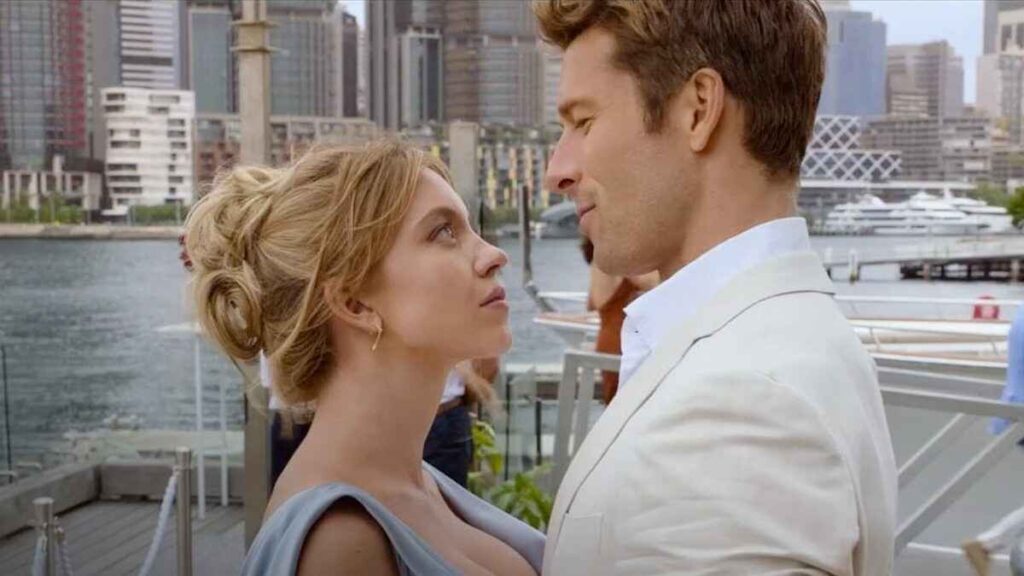Anyone But You: A Tale of Unwanted Love

Unwanted love is a theme that resonates deeply across various forms of art and literature. It’s a narrative filled with emotional complexity, where one person’s affection is not reciprocated, leading to a whirlwind of feelings and consequences. This article delves into the multifaceted nature of unwanted love, exploring its impact on individuals and society, and providing insights into handling such situations.
Understanding Unwanted Love
Unwanted love, often referred to as unrequited love, is a one-sided affection where one person harbors romantic feelings that are not returned by the other. This type of love can be heart-wrenching and deeply impactful, affecting the emotional well-being of the individuals involved.
The Emotional Impact of Unwanted Love

The psychological effects of unwanted love can be profound. Feelings of rejection, inadequacy, and loneliness often accompany this type of love. Case studies reveal that individuals experiencing unwanted love may undergo severe emotional distress, leading to anxiety and depression. For instance, consider the character Jay Gatsby from F. Scott Fitzgerald’s “The Great Gatsby,” whose unreciprocated love for Daisy Buchanan leads to his ultimate downfall.
Literary Examples of Unwanted Love
Unwanted love is a prevalent theme in literature. In classic literature, Shakespeare’s “Romeo and Juliet” highlights the tragic consequences of unreciprocated love. In modern literature, novels like “The Fault in Our Stars” by John Green portray the poignant struggles of loving someone who cannot return the same intensity of emotion.
Unwanted Love in Movies and TV Shows

Movies and TV shows have also explored the theme of unwanted love extensively. Films like “500 Days of Summer” and TV shows like “Friends” (think of Ross and Rachel’s turbulent relationship) offer iconic examples of how unreciprocated love plays out on screen, often leading to character development and dramatic tension.
The Role of Unwanted Love in Character Development
Unwanted love often serves as a catalyst for character growth. It forces characters to confront their vulnerabilities and often leads to significant personal development. For example, in Jane Austen’s “Pride and Prejudice,” Mr. Darcy’s initial unreciprocated love for Elizabeth Bennet ultimately leads to his transformation into a more self-aware and considerate individual.
The Perspective of the Unwanted Lover
For the person who loves without reciprocation, the emotional journey is tumultuous. They often experience a range of emotions from hope to despair. Coping mechanisms vary, including seeking distractions, confiding in friends, or pursuing new hobbies to mitigate the pain of rejection.
The Perspective of the Unwilling Object of Affection
On the other side, the person who is the object of unwanted affection also faces challenges. They might feel guilt, annoyance, or pressure to reciprocate feelings they do not share. Managing such situations delicately and respectfully is crucial to maintaining emotional balance.
The Social Consequences of Unwanted Love
Unwanted love can strain social relationships, creating awkwardness and tension among mutual friends and acquaintances. Social stigma often surrounds those who persistently express unreciprocated affection, sometimes leading to isolation and gossip.
Unwanted Love in Different Cultures
Cultural perspectives on unwanted love vary significantly. In some cultures, societal norms dictate that unreciprocated love should be accepted gracefully and silently endured. In others, expressing and overcoming such emotions openly is encouraged.
How to Handle Unwanted Love in Real Life
Handling unwanted love requires maturity and emotional intelligence. Practical advice includes setting clear boundaries, focusing on self-care, and seeking professional counseling if needed. It’s important to recognize one’s worth and not let unreciprocated affection define self-esteem.
Unwanted Love and Personal Growth
While unwanted love is painful, it can also be a powerful catalyst for personal growth. Individuals often learn resilience, self-awareness, and emotional strength. Transforming the pain of unreciprocated love into a journey of self-discovery can lead to profound personal development.
Famous Quotes About Unwanted Love
Quotes about unwanted love often capture the essence of its bittersweet nature. For example, Khalil Gibran said, “Ever has it been that love knows not its own depth until the hour of separation.” Such quotes offer solace and insight into the human experience of love and loss.
Creative Expressions of Unwanted Love
Artists, poets, and musicians have long expressed the agony and beauty of unrequited love. Songs like “All I Ask” by Adele and poems like “When You Are Old” by W.B. Yeats resonate deeply with those who have loved without reciprocation. Artistic expressions provide a cathartic outlet for these intense emotions.
Conclusion
Unwanted love, while challenging, is a universal experience that offers valuable lessons. It teaches resilience, empathy, and the importance of self-love. By understanding and addressing the complexities of unreciprocated affection, individuals can navigate this emotional terrain with grace and emerge stronger.
